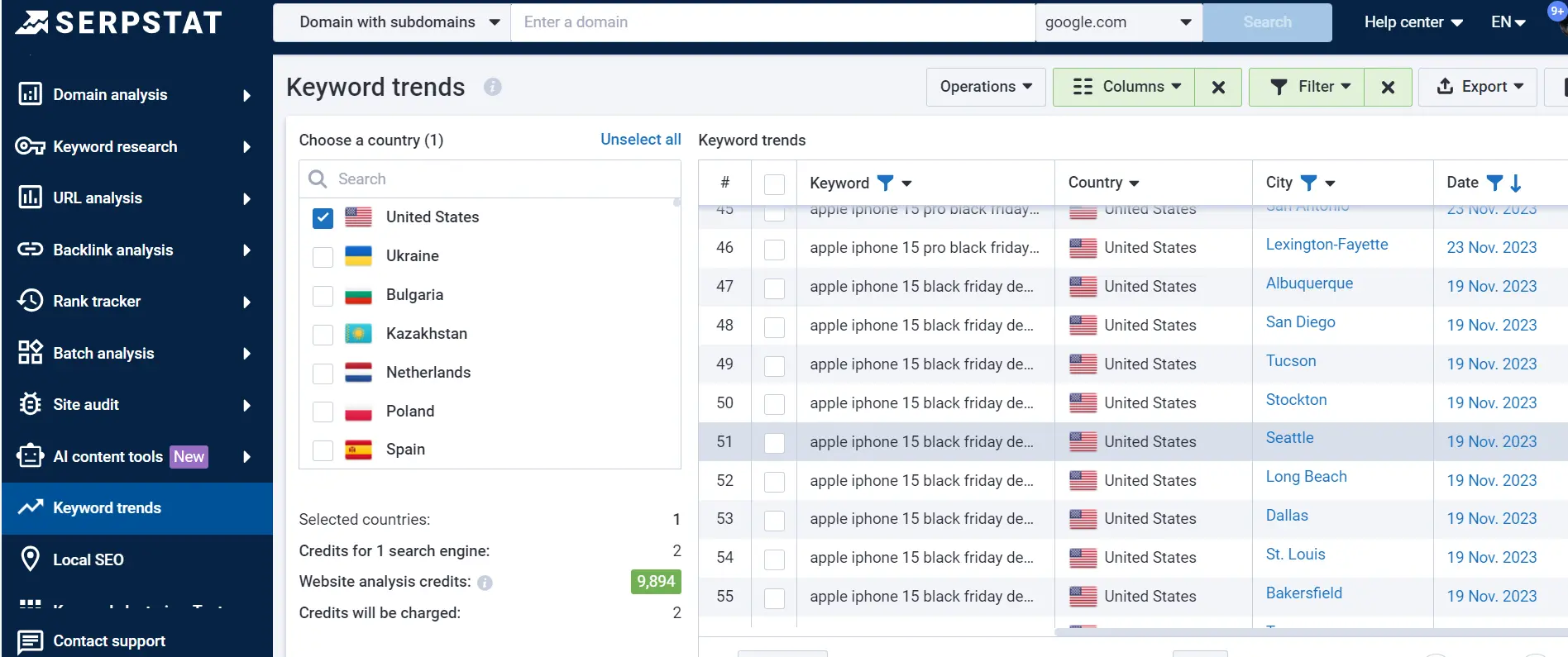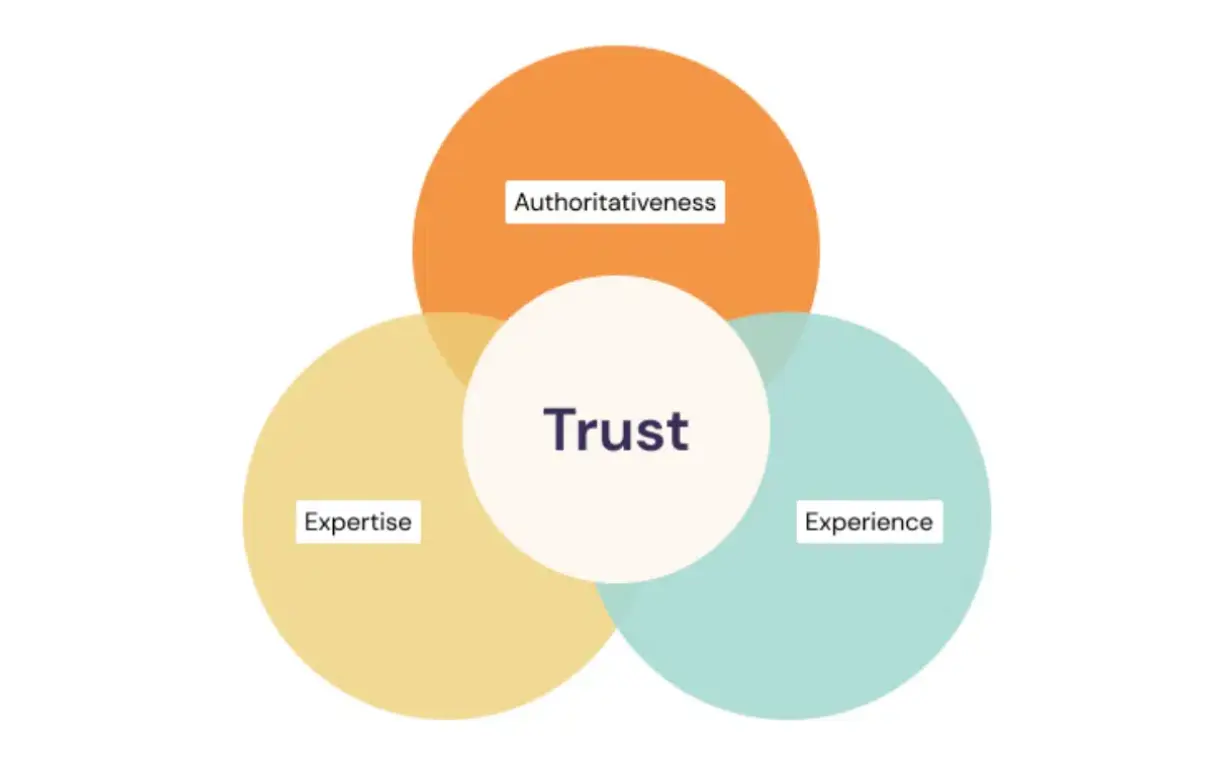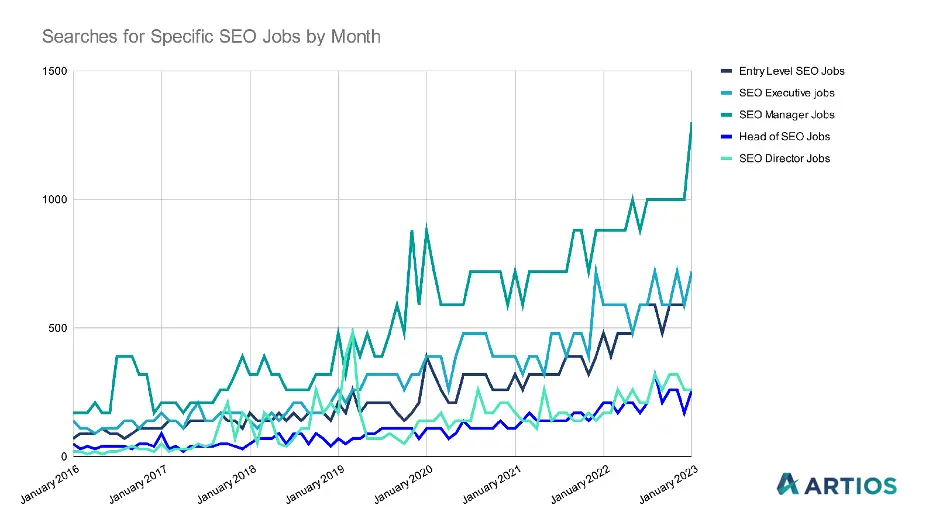Start Exploring Keyword Ideas
Use Serpstat to find the best keywords for your website
Digital Trends of 2024: What Should We Be Ready for?


How do we know the future of digital marketing? We have analyzed the two years of SEO news using GPT-4’s analytical mode:) Also, we interviewed top experts to identify internet marketing trends. So, let's go!
Expert Comments on Last Year's Trends
Meet our contributors

Thanks to lockdowns and the increased prevalence of digital technology, digital marketing budgets have risen. Companies that had previously overlooked it will start investing in SEO to grow their reach. This brings lots of opportunities and downsides, as many new link-building and SEO agencies that don't have the expertise to provide clients' support might spring up.
Ensure you choose a trustworthy agency with the in-house capabilities to write engaging content that is not thoughtlessly generated using AI, provide technical SEO audits, and build quality links. Ask for testimonials or examples of their work to find the right agency for your business.


The big SEO trend to watch is still Google's Core Web Vitals. These metrics aim to apply quantitative measurements to user experience. They build on existing UX ranking factors like mobile-friendliness, security, and frictionless content delivery by layering in more granular page speed data, interactivity, and visual stability.
Also, one more "E" in E-A-T (the acronym for Expertise, Authoritativeness, and Trustworthiness) now stands for "Experience."


An inclusive content strategy is now crucial to ensure your audience feels recognized through your marketing. It calls for creating thoughtful content that decreases cultural biases and empathizes with the diverse communities you engage with. This calls for robust audience research and thinking deeply about every aspect of your brand, including website copy, user experience, the style guide for your blog, your team, and even that seemingly harmless stock image of a group of people you choose for a post.
Your business also needs to be more accessible on the web to the next billion users coming online for the first time in the next five years.
Translating your site's content into their native languages and creating a new YouTube channel in the top non-English languages your audience speaks is great for a start. However, understanding these new users' needs and how they experience the internet is key to growing your footprint.


For SEO, three things will be crucial. These are:
- Voice Search. People are gradually moving away from text search to voice search, and hence, strategies like featured snippet optimization and long-tail keyword optimization, will become more critical.
- Page Speed. With the Page Experience Update launch, Google has made it clear that user experience is their top priority. Hence, making your site Core Web Vital friendly will be something that SEOs should concentrate the most on.
- Content Quality. Google has become smarter in detecting high-quality, fresh, relevant, comprehensive, and unique content. Content quality will play a game-changing role in the rankings.
- Buyer Journey Optimization. For SEM, buyer journey optimization is the essential step that most PPC marketers still miss. PPC marketers need to study the customers' pain points and create ads for every phase of the buyer journey and not just the buying phase. Automation will play a key role.
For marketing, I think brands that will move away from self-interest and work in favor of the audience will lead the race. For instance, create content that solves the consumers' pain points, run ads that people find more engaging, test what is working at every step of the buyer journey, offer pro-active support, be there for the users when they need you, and automate your marketing and teamwork.

Companies that will adopt digital solutions (including AI usage) to automate repetitious tasks, and improve productivity while taking care of the customers at every level will be loved and accepted by the people.

I predict marketers will focus more on basics and finding channels that best resonate with their audiences. It seems that many companies are trying to implement any marketing idea without considering the ROI and whether those ideas bring quality leads and customers.
Regarding SEO, the last core Google updates show that content is king and always will be. Content that helps readers solve problems and educate themselves will get the most organic backlinks, have the highest GA4 metrics, and, most importantly, convert the best.
Also, I believe that marketing winners will be teams focusing on actually doing effective things. All the best practices are already out there. Instead of planning and experimenting, just do what works.


As an outreach manager, I see a massive void between good outreach and terrible outreach. And there's a clear differentiation in the quality of the links that both types of outreach get. Some brands out there have backlinking via outreach down to fine art, and I feel it's only a matter of time until Google tries to monetize that themselves or finds a way to 'punish' those. Perhaps making link velocity a ranking factor will come in.


With the budgets of brands in specific sectors being restricted, we'll likely see brands focus more on content repurposing to make the most of their budgets.
Businesses with a solid existing content marketing strategy in place will be in the best position to capitalize as online shopping continues to surge, so much so that some retailers may decide to move online entirely. One good example is a guitar store here in the UK, Peach Guitars. Even when they were allowed to open back up after the second national lockdown, they remained closed due to increased digital sales.


During the past year, we've had a handful of Google updates. Everyone likes to use catchy terms, but it's always the same, low-quality content on low-authority sites that abuse link-building tactics will get hit the hardest. That's not to say you should avoid link-building or grey-hat strategies, but rather, increased emphasis on other factors will continue to become more crucial.


2023 made it clear to us that consistency in search behavior isn't a given. Not only can world events change search interests, but they can have a second-layer effect on unlikely industries.
The most successful marketers will be those who take a keen interest in the events, holidays, online trends, controversies, and crises that hinder or accelerate their growth. It won't be enough to react to situations as they happen. Folks must create demand forecasts and content strategies that they can activate under special circumstances.
SEO service providers might need to take similar action. With search volume changing so quickly (and in unexpected places), we'll need to be able to see these changes at scale for an entire website or keyword category. This notoriously hard-to-get data will need to become much easier to find.


Uncover the latest keyword trends with Serpstat's 7-day free trial!
Experience the power of real-time keyword insights to enhance your SEO strategy. For even more precise analysis, explore our Search Volume Crawling Service.

The importance of smartphones and SEO for mobile devices will continue to grow. The user experience on mobile devices will become an essential ranking factor in SEO terms next year.
Therefore, website owner should ensure that their technical SEO is excellently adapted to these conditions; otherwise, there is a risk of severe ranking losses.
In my personal experience, TikTok will still have influence. The advertising opportunities are enormous on TikTok, with 1.677 billion users worldwide (1.1 billion are its monthly active users). Nevertheless, the competition on the platform is still low compared to Facebook or Instagram ads.
I think content marketing will get more competitive in the next years. More and more people are setting up their businesses to make up for the losses caused by their lost jobs. All these circumstances mean that there will be more content than ever before.
Thus, Companies are forced to build communities around their brands and network more. Videos, especially streaming, will become essential tools in this process. With videos' help, a stronger relationship with the community can be built quickly and comparatively easily. This will be necessary to survive the influx of new content producers.


My advice to content marketers is to produce more high-quality content. Note the focus on quality. More and more, it's less about how much content you create — and more about how much value you deliver.
Here are some key factors to focus on when developing your content marketing strategy for SEO:
- Search intent. Create content matching the user's intent to search for your target keyword. Check out the SERPs to find out what Google has already determined users are looking for when searching for your term. Search features like rich and featured snippets can also shed much light on search intent.
- Topical relevance. The more content you create relevant to a specific topic, the more likely Google recognizes your site as an authority. A solid internal linking (interlinking) strategy is a powerful way to build topical authority and relevance.
- Entity optimization. Google has been pouring significant resources into Natural Language Processing (NLP) for years. NLP's impact on SEO is bound to grow significantly in the coming years. Entities are one of the main components of NLP, and on-page optimization tools can already help you tailor your content for a more NLP-driven future.


For me, we will heavily focus on strategy (and product) adaptation and diversification.
As Google continues to develop its products and becomes more of a portal search engine than a linear search bar (akin to Baidu and Yahoo), we need to adapt our approaches to accommodate a landscape that has changed (and not necessarily in favor of the SEO).
For many websites, the amount of traffic they can receive, compared to previous periods, and without significant change to their models, has now been limited — not by Google, but by a change in user expectations of search results.
Communicating this change in the landscape to clients is vital, as well as communicating the new approach to grow traffic again within the new world parameters presented to us.


The biggest trend is the importance of User Experience (UX) and its impact on SEO performance. You won't get by with poor UX and expect to continue growing your organic search traffic.
I also predict that websites will continue to get fewer organic clicks because of an increased volume of search features and Google ads. That's why it's fundamental that you develop a strategy for "stealing" featured snippets. The best method I've used is to simply model what's already ranking. If your website has enough authority, you should be able to overtake them.


On a general note, I wouldn't say that the core of Google's algos are changing dramatically with each year. In reality, Google has started to focus on more specific details as it gets harder and harder to filter out second-rate sites on the fly. So, that's the reason why we see key web vitals as a part of a site's quality evaluation. The same goes for content, links, and many other ranking factors.
So, to ensure that your business will invest in the right SEO activities that will pay off in the long run, you must ensure that your benchmarks are far beyond industry average because, eventually, today's industry averages will become outdated by the next Google algo update.
Don't believe me? Then let's take links as an example since I'm the founder of a link-building agency. As you can guess, if today's link from a so-so site is acceptable, then tomorrow, most probably, it's not going to be okay. So, that's the reason why it's much more beneficial to invest in building truly meaningful links for your brand rather than getting something from sites that are okay for today.


The Core web vitals will be the next SEO trend, as Google announced it will be a ranking factor. Google defined the three factors that will be analyzed by the algorithm:
- Largest Contentful Paint (LCP);
- First Input Delay (FID);
- Cumulative Layout Shift (CLS).
LCP is a user-centric metric for measuring perceived load speed. To provide a good user experience, sites should strive to have the Largest Contentful Paint occur within the first 2.5 seconds of the page starting to load. The metric reports the render time of the largest image or text block visible within the viewport.
FID measures the time from when a user first interacts with a page to when the browser can actually begin processing event handlers in response to that interaction. In other words, a low FID helps ensure that the page is usable.
CLS helps quantify how often users experience unexpected layout shifts. A layout shift occurs when a visible element changes its position from one rendered frame to the next. A low CLS helps ensure that the page is delightful.
Many specialists foresee that success will come to those who stay focused on their target audience. As the owner of ZATO, Kirk Williams, has formed it: "The business that invests well into learning who their audience is, what they care about, where they spend their time, and what they want to hear, can then build a PPC campaign strategy targeting those audiences and how they are searching. This will inform landing page creation and content, ad creative, and various Google ads targeting metrics such as audiences, keywords ranking, location, devices, and more." I relate to that 100%.
Marketers must develop a unique approach to consumer interaction, and voice search should be part of a more connected brand experience.
It's obvious, but many people do not do it. Do keyword research, write on topics that people actually look for, nail the searcher's intent, and create long-form content based on your experience and data.



2024 SEO Forecast: 8 Trends to Dig Into
To summarize all that has been said, we decided to include a glimpse into the key SEO trends that emerged in 2023 and are expected to shape the digital world in 2024:
#1: E-E-A-T
There's a significant update in Google's approach to content evaluation. Google has introduced a new criterion for content quality assessment – Experience (E), expanding the well-known E-A-T model to EEAT. This updated approach is especially pertinent in fields impacting life, health, finances, and well-being.

Google now values content created by authors with real-world experience in their subject matter. This shift emphasizes the importance of authentic, expert-driven content.
Some critical factors negatively impacting assessments include:
- The author lacks relevant experience.
- The author has only theoretical knowledge of the subject without practical application.
- The website or author is not authoritative or trustworthy on the topic. For instance, tax information on a culinary site.
- Pages or sites that appear suspicious, like product pages with insufficient customer service information.
- Unclear responsibility for the content on a page. However, using a pseudonym or author name is acceptable for personal privacy.
Furthermore, Google representatives note that a site's positive reputation won't influence individual page evaluations if they lack EEAT.
#2: AI's Growing Influence
Artificial intelligence is becoming a game-changer in search result personalization and content creation. AI tools are set to revolutionize how content is written, optimized, and analyzed.
#3: Core Web Vitals as a Priority
Google prioritizes websites offering a fast, efficient, and user-friendly experience. Meeting these Core Web Vitals is essential for maintaining online visibility.
#4: The Rise of Multimedia Content
Engaging content formats like videos, podcasts, and interactive graphics are becoming more influential. These formats enhance user engagement.
#5: SEO Job Market
The demand for SEO specialists continues to grow, reflecting the dynamic and competitive nature of the field. Staying updated with the latest skills is crucial to meet the evolving requirements of search marketing roles.

#6: Content Marketing
Content remains a cornerstone of SEO, driving engagement and conversions. Content remains a cornerstone of SEO, driving engagement and conversions. It's not just about driving engagement and conversions anymore; it's about creating value that resonates with audiences.
#7: Algorithm Updates
Keeping abreast of search engine algorithm updates is crucial. Adapting strategies in response to these changes ensures that SEO efforts align with current best practices.
#8 Data Analytics
Data drives informed decision-making in SEO. Using data analytics tools helps understand user behavior and trends, which is fundamental for shaping effective SEO strategy for 2024.
Well, it might be interesting to compare the new data with the 2023 trends in Internet marketing:
We wish you a productive journey in mastering these SEO trends!
Discover More SEO Tools
Backlink Cheсker
Backlinks checking for any site. Increase the power of your backlink profile
API for SEO
Search big data and get results using SEO API
Competitor Website Analytics
Complete analysis of competitors' websites for SEO and PPC
Keyword Rank Checker
Google Keyword Rankings Checker - gain valuable insights into your website's search engine rankings
Recommended posts
Cases, life hacks, researches, and useful articles
Don’t you have time to follow the news? No worries! Our editor will choose articles that will definitely help you with your work. Join our cozy community :)
By clicking the button, you agree to our privacy policy.









